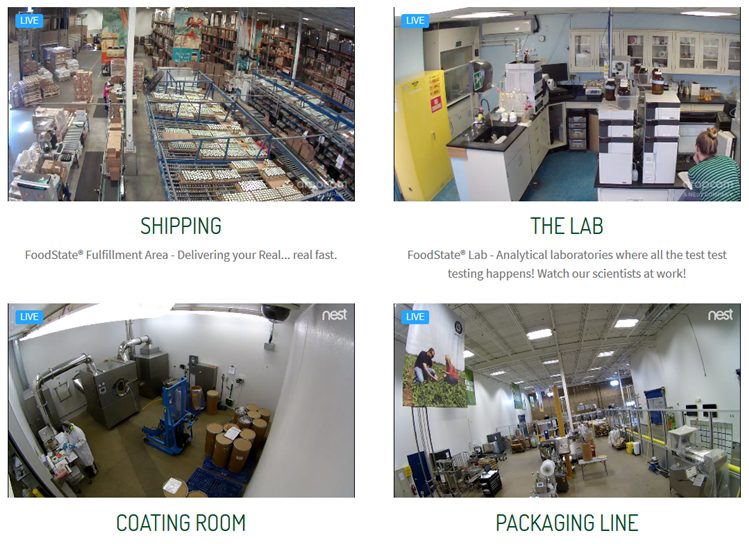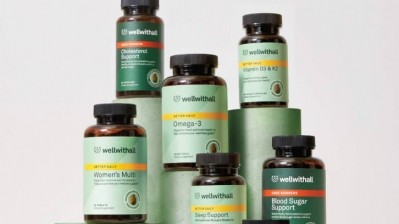When transparency is no longer a differentiator, supplement brands need to be creative with corporate social responsibility

“A lot of people think [CSR] is really just for big companies—that the smaller companies are under the radar, that they’re not being scrutinized,” said Nancy Himmelfarb, principal of her own firm NJH Sustainability Consulting, during a panel discussion hosted by the Chicagoland Food and Beverage Network last week.
It’s not true, she added. “If smaller companies want to appeal to customers, or want to be on Walmart shelves, want to potentially get acquired one day—you’ve got investors to satisfy, and of course consumers. You’re facing a lot of pressures, and this really applies across the board.”
What does ‘Corporate Social Responsibility’ even mean?
Himmelfarb noticed that, in various industries, there may be confusion about what ‘corporate social responsibility’ actually means.
“If you talk to your colleagues, talk to your boss, talk to your customers, you may hear very different definitions of what it means to them,” she said. “Some think it’s about philanthropy and donating dollars to the community. Some think it’s just about the environment.”
She uses ‘3Vs’ to define it. The first is ‘value,’ in terms of understanding what is valued by a company and its many stakeholders (including employees, community, environmental groups, and so forth), defining a company’s place in the world.
The next, ‘viewpoint,’ means developing and articulating a clear perspective that reduces confusion around the topic in an authentic, credible, and emotionally engaging way; and finally ‘vehicles,’ having strategies and messages that drive the value and viewpoints articulated and engage all of a company’s key stakeholders.
Defined by another panelist present that evening, Grant Prentice, SVP, director of strategic insights at communications and consulting firm FoodMinds, companies are now defining CSR as “‘purpose’ and ‘mission,’ as they seek to better align their business and branding efforts with products and services that benefit customers, society and the environment.”
His firm’s clients include companies, big and small, throughout the food value chain, from inputs, to ingredient suppliers, finished product brands, and retailers.
“[CSR] is about what is a company doing to make a difference, and doing so in a responsible manner,” he added. “Our sense is that social responsibility strategy, or a company’s purpose, can be informed by those global food values that are most relevant to their company, brand, value chain partners, and consumers.”
For omega-3 players, marine sustainability a relevant CSR purpose
Photo: Aker
In this article from April 2016, we explored the sustainability challenges associated with marine omega-3 products, from climate change to marine chemical pollution to sustainability of fisheries.
Get creative with transparency
Consumers today want to support companies that have a purpose beyond their own bottom lines. Companies in the dietary supplement space are no exception.
“I think in the supplements space, more than in the general food sector as a whole, there’s more concern about the purity, contamination, accuracy of potency, those types of things,” Himmelfarb told NutraIngredients-USA.
Hence, transparency is a big pillar for corporate social responsibility for the industry, “especially after some high profile quality breaches,” she added.
However, as authenticity of contents, certification of independent testing, and so forth slowly become an expected part of dietary supplement branding, ‘transparency’ will no longer be a differentiator. Companies then need to be creative with how they communicate this responsibility and promise to consumers.
An example that Himmelfarb shared with audiences is Megafood’s online live cams of their facilities, which give consumers a look into what’s happening at Megafood’s lab, shipping area, coating room, and more, in the hopes of lifting the mysterious vibe that may shroud the production of dietary supplements.
Other examples in which brands go beyond third-party lab testing and certifications include start-up Pin Up Girl Protein, which wants to promote body positivity among women while also donating to nonprofits that empower girls and women through physical activity, as well as India-based ingredient company Sami-Sabinsa Group, which is working with local governments and nonprofits to spearhead a reforestation project of an endangered, native plant species.

Not just for the consumer facing
Corporate social responsibility isn’t just a concern for companies that are more consumer-facing, Prentice said.
“I think corporate social responsibility and purpose are equally relevant to all companies that deliver products and services throughout the food value chain. I think ingredient manufacturing companies play an important role in the value chain, and their own social responsibility efforts can cascade down to contribute to those of their customers,” he said.
Any purpose or project an ingredient supplier puts in place—sustainability certifications, sourcing stories, contribution to the communities—can be passed down to the packaging of a finished goods’ customer.
“Customers are asking about it, so I think it’s extremely important to engage.”










